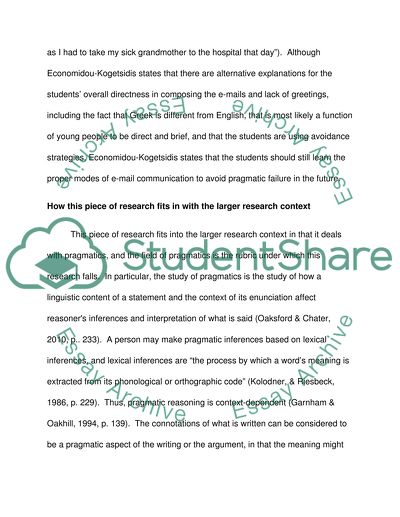Cite this document
(Economidou-Kogetsidis and the Development of E-Mail Literacy Term Paper, n.d.)
Economidou-Kogetsidis and the Development of E-Mail Literacy Term Paper. Retrieved from https://studentshare.org/education/1585853-please-answer-me-as-soon-as-possible-pragmatic-failure-in-non-native-speakers-email-request-to-faculty-critical-analysis
Economidou-Kogetsidis and the Development of E-Mail Literacy Term Paper. Retrieved from https://studentshare.org/education/1585853-please-answer-me-as-soon-as-possible-pragmatic-failure-in-non-native-speakers-email-request-to-faculty-critical-analysis
(Economidou-Kogetsidis and the Development of E-Mail Literacy Term Paper)
Economidou-Kogetsidis and the Development of E-Mail Literacy Term Paper. https://studentshare.org/education/1585853-please-answer-me-as-soon-as-possible-pragmatic-failure-in-non-native-speakers-email-request-to-faculty-critical-analysis.
Economidou-Kogetsidis and the Development of E-Mail Literacy Term Paper. https://studentshare.org/education/1585853-please-answer-me-as-soon-as-possible-pragmatic-failure-in-non-native-speakers-email-request-to-faculty-critical-analysis.
“Economidou-Kogetsidis and the Development of E-Mail Literacy Term Paper”, n.d. https://studentshare.org/education/1585853-please-answer-me-as-soon-as-possible-pragmatic-failure-in-non-native-speakers-email-request-to-faculty-critical-analysis.


